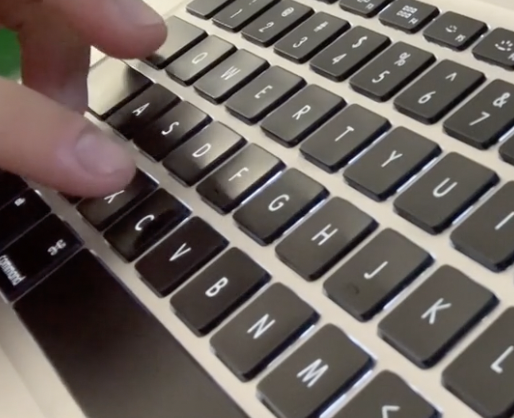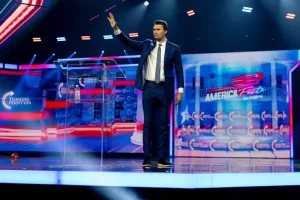Dear Wrestling Fans: No More Online Tribalism

The rise of social media has contributed to the rise of animosity in the internet wrestling community.
April 20, 2022
The professional wrestling community has experienced a boom over the past couple of years, making this moment the most popular time to be a pro wrestling fan since the early to mid-2000s. WWE has held its position at the top of the wrestling landscape, but there are now more alternative options than ever. Upstart promotions and older ones restoring their original glory have crowded the field, making for some of the most compelling and competitive landscapes the wrestling world has seen in a very long time.
With the arrival of the American-based promotion All Elite Wrestling (AEW), the product shown to fans resembles one with widespread influence from across the world. The visuals of AEW’s edgier, old-school development have resulted in many lapsed fans back into the fold of the ever-changing wrestling world. Unfortunately, the new golden era of the industry coincides with the age of social media. For every positive that comes along with finding others online who share the same interests as you, another group of people will vehemently oppose your viewpoint to toxic levels. The wrestling world has undoubtedly been affected by the rise of social media. It is very responsible for the rising tensions between wrestlers in other companies and pitting fans of one company against another. While the wrestling you see on television and online has never been so exciting, the online toxicity has also reached a boiling point.
When AEW was founded in 2019, many diehard fans had anointed the company as the savior of professional wrestling. For years, WWE had asserted itself as the elite organization for wrestlers looking for their big break. It was, and still is, so wildly popular worldwide and was the destination you needed to be to make an actual name for yourself in the business. It wasn’t until AEW’s first unofficial PPV, All In in 2018, that put the entire industry on notice. What happened afterward was a revolution that opened the eyes of fans who had been accustomed to the “WWE style” of wrestling. Companies like GCW, Impact, Ring of Honor, and numerous independent organizations have asserted themselves firmly in the market for top stars to rebuild their brand on the “indie scene.” Finally, AEW is financially backed by Tony Khan, an American businessman with an estimated net worth of $1 billion. He is thoroughly invested in the booking and promoting of the company, essentially ensuring that AEW serves as the first actual threat to WWE’s monopoly over the wrestling industry since WCW’s demise in 2001.
While the birth of AEW and the resurgence of the indie scene are great for professional wrestling, the online hyperbole on Twitter and Instagram has created an extremely toxic environment for anybody who is a fan. Whether it is the diehard WWE fans who swear against all the progress made by rival companies or the AEW fans who have anointed Tony Khan as a religious figure, escaping the wrath of the dreaded Internet Wrestling Community (IWC) is damn near impossible. The issue is rooted deeply in other lanes of social media, as it is representative of the biggest flaw in the rise of sites like Twitter, YouTube, and Instagram. The ‘holier than thou attitude on display from those who represent the indie wrestling style is equally as toxic as the WWE fans who refuse to believe there is any form of wrestling taking place in the world that can remotely touch their decades-long dominance on top. However, that seems to be the part that fans don’t understand.
Pro wrestling is an entirely different and extraordinary landscape. It’s not like football, basketball, or baseball, where the game is best represented by one top league such as the NFL, NBA, or MLB. Professional wrestling spans across the world. In the 1980s, the territorial system dominated the sport, with regional wrestling creating several options for those who wanted to enjoy the art form. Using that logic, there’s no direct way to answer which specific company truly embodies the spirit of professional wrestling the best.
And therein lies the problem with tribalism amongst wrestling fans: none are ever wrong. There are so many different styles of wrestling across the world, and everyone will prefer another brand of wrestling—Japan’s hard-hitting and stiff style of fighting enchanted fans around the world. America’s cleaner, more polished wrestling style had conditioned fans to believe it is the best. Mexico’s Lucha-libre wrestling style has inspired generations upon generations of Latin wrestlers over the years. It is imperative to find a kind of wrestling that wins over your heart and allows you to enjoy that style without putting down other promotions for not agreeing with your opinion. Without tribalism amongst fans, it will contribute to a cleaner and more enjoyable wrestling community.





